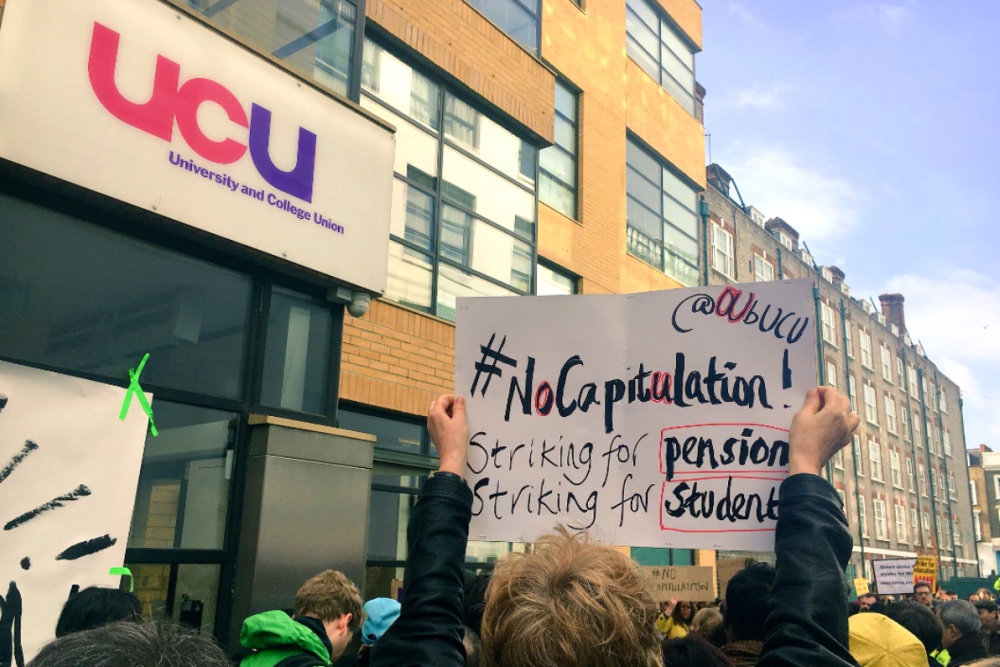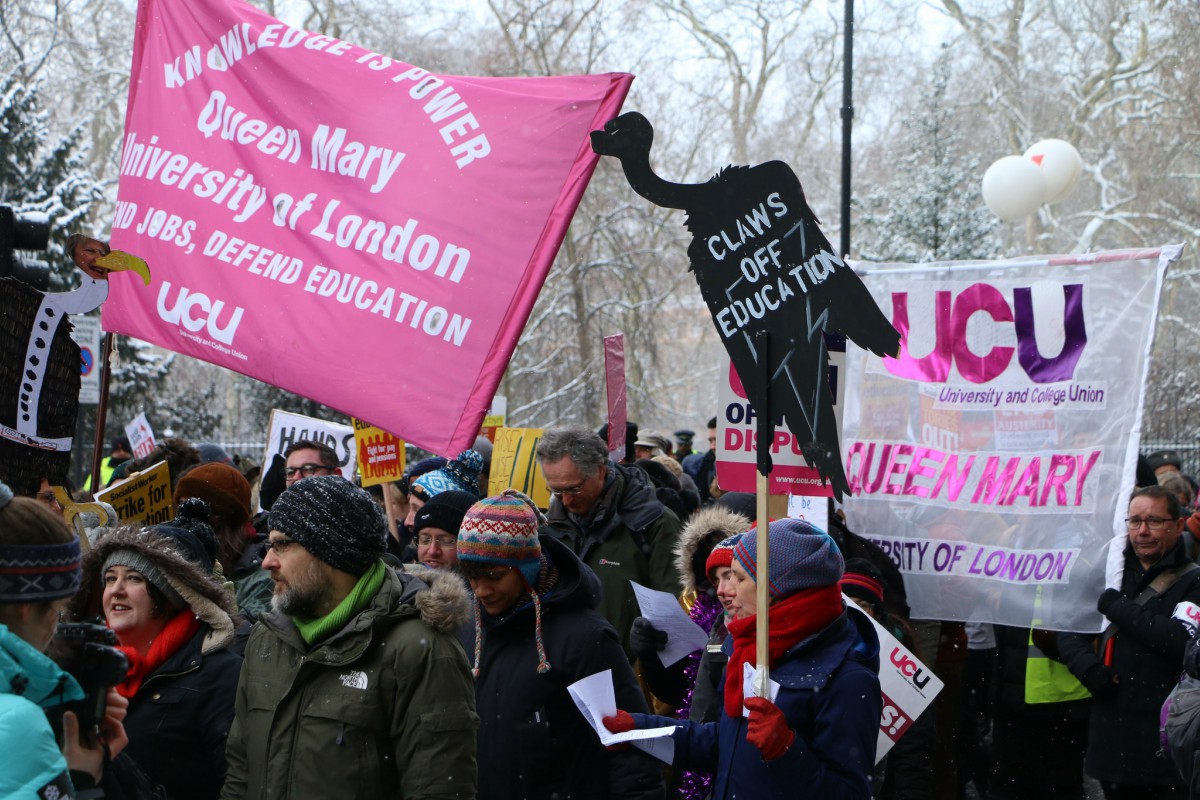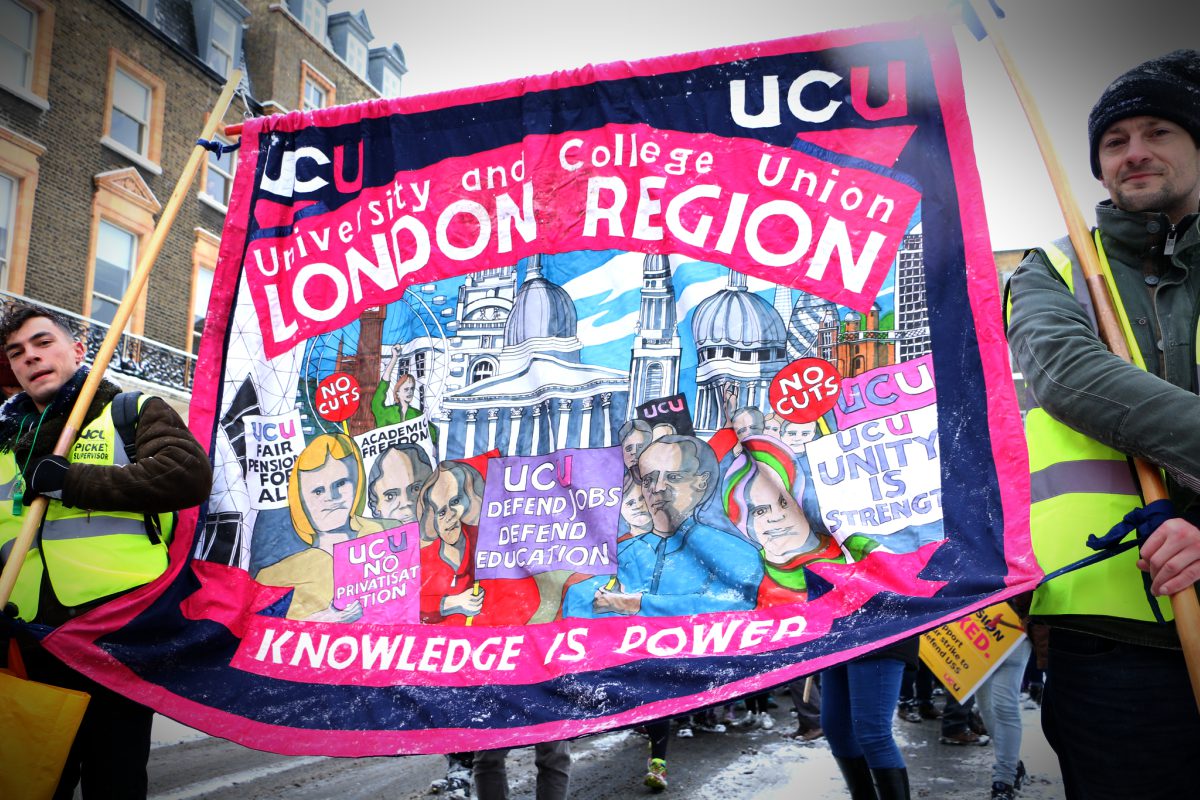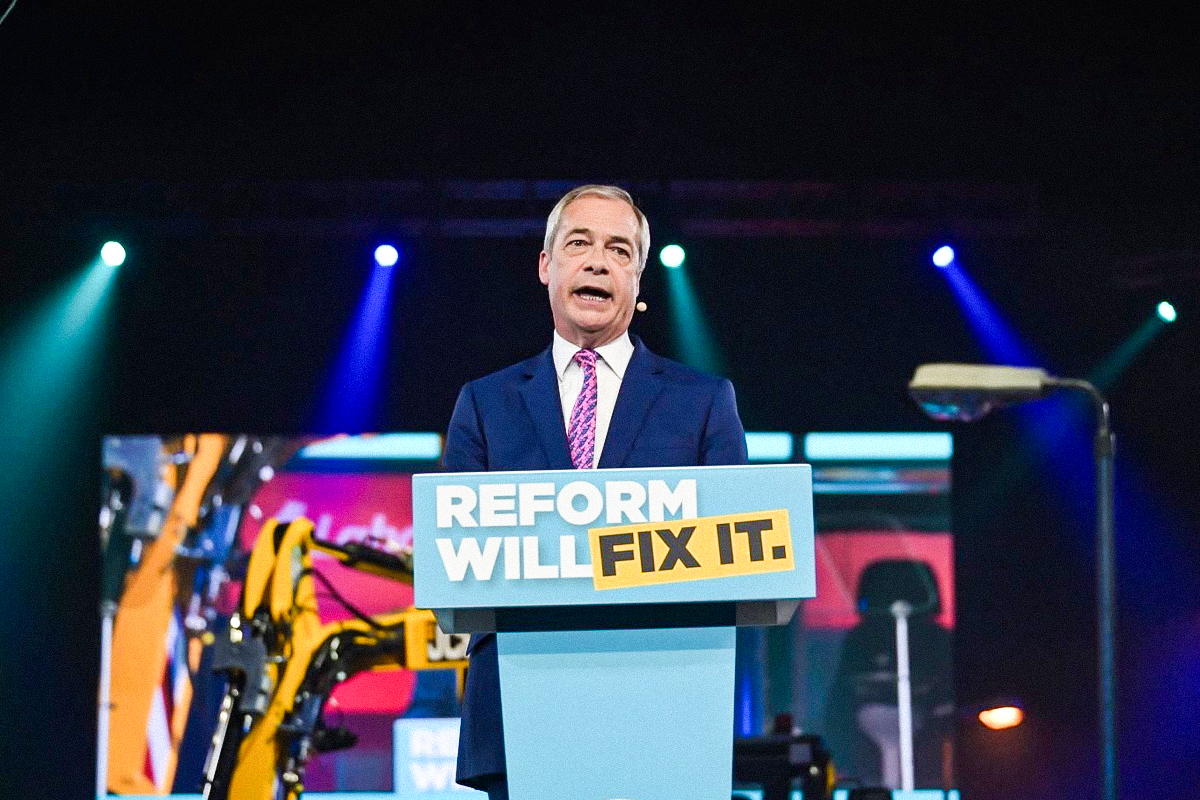The UCU begins a new round of strike action today, in an ongoing disupute over pensions and working conditions. University bosses are on the defensive. A militant turnout could result in big concessions. Solidarity with striking lecturers!
The Universities and Colleges Union (UCU) announced on 3 February that they would be calling another round of strikes at more than seventy Higher Education sites, following on from the eight days of action held last November and December. Beginning on 20 February, union members will take 14 days of strike action spread over four weeks.
This will represent a significant escalation of the long-running struggle in Higher Education, disrupting sites across the country. It is another opportunity to turn the tide in the sector away from the worsening conditions and blatant marketisation that have swept through it in recent years.
The strike encompasses both of the disputes at issue in the recent previous strike, but this time it will also affect fourteen more sites after a process of balloting resulted in several more institutions – including several major London universities, as well as regional post-92 ones – making the 50% turnout threshold.
The first issue under dispute is over the USS pension scheme, where members are being told that they will have to make increased contributions and accept cuts to their payouts, all based on a dodgy valuation of the scheme. It follows on from the great, 4-week 2018 action that helped to transform the union. That struggle pushed many new people into activity, increased the membership, discredited the previous leadership, and paved the way for the election of a more militant general secretary in Jo Grady.
The second dispute being fought is known as the Four Fights and encompasses a series of important claims on pay, casualisation, workloads, and gender and ethnic inequalities. This dispute directly affects the most pressured and exploited groups in the union and will help to ensure strong support from those young workers who were so vital in making the 2018 action successful. Bad pay, precarious contracts, unbearable workloads, and unfairness in the treatment of women, BAME, migrant, and disabled staff are endemic in the sector. Despite its reputation as an “ivory tower” immune from the symptoms of a decrepit capitalist system, Higher Education is very much part of the general picture in all of these respects.
Negotiations
 Since the action last year, negotiations have been ongoing but have yet to produce a decisive result. Some movement was seen over the Four Fights dispute, with an offer presented by the employers’ body, UCEA, which promised to set a series of “expectations” for universities on the issues of casualisation and inequalities.
Since the action last year, negotiations have been ongoing but have yet to produce a decisive result. Some movement was seen over the Four Fights dispute, with an offer presented by the employers’ body, UCEA, which promised to set a series of “expectations” for universities on the issues of casualisation and inequalities.
But these “expectations” were woolly and insubstantial, effectively permitting individual universities to interpret them as they pleased. If accepted, the offer would simply have resulted in greater differentiation in conditions across the sector and the atomisation of struggles, as the onus would have been on branches to act locally to ensure actual improvements. On pay and workloads, meanwhile, nothing of significance was forthcoming. As such, UCU’s Higher Education Committee (HEC) was right to reject the desultory offer.
On the pension dispute, meanwhile, the situation has mostly been stagnant, with only one minor concession offered in the last round of negotiations. It is nevertheless clear that the previous rounds of industrial action have put the employers on the defensive, and a strong turnout for this new action (akin to what was seen two years ago) could result in big concessions being won.
Militancy required
Members are still angry about all the issues being fought over, but there is some trepidation about another protracted period of lost pay and disruption to student education and to research. It will be important therefore for all union militants to intervene energetically at meetings, providing a perspective for winning these disputes, raising confidence and paving the way for further victories in the future.
The struggle will not be won in isolation, however. It is essential that the strongest possible links are built between UCU members, students and the other unions in the HE sector (especially Unite, Unison, and EIS in Scotland).
Where the UCU is well organised with a strong presence on site, they should be offering support to weaker unions to ensure that in future all unions pass the turnout threshold, so that campus staff can coordinate action to strike together. For now, they should be clearly stating that a win for UCU will set an important, positive precedent for other unions to follow.
Marxist students will be taking a lead in organising solidarity with the UCU strikers and supporting them on the picket lines. Students must place utmost pressure on their student unions and on the NUS leadership not only to come out fully in support of UCU’s action, but to campaign for students to join the pickets and use it as an opportunity to fight back against the marketisation of education. We say they should also collectively raise the call and mobilise for a general student strike in solidarity with striking staff, which would also help to raise wider political demands affecting both students and workers. Their failure to date to do so demonstrates the need for a new leadership of the student movement.
Fightback
 The strike should also be used to energise the fightback after the general election defeat and build connections between local Labour Party branches and HE workers. Motions should be passed at ward and CLP level expressing support for the strike, delegations should be organised to attend picket lines, and collections made for hardship funds.
The strike should also be used to energise the fightback after the general election defeat and build connections between local Labour Party branches and HE workers. Motions should be passed at ward and CLP level expressing support for the strike, delegations should be organised to attend picket lines, and collections made for hardship funds.
The opposite of a marketised education system with worsening conditions for staff is a socialist education system under the democratic control of staff and students. The transformation of one into the other is a political struggle that concerns the whole of the working-class movement. The UCU fight is part of that.
- All out for victory!
- Organise student support for the strike on a socialist basis!
- Stop Johnson in his tracks! Connect this struggle with the post-election fightback and the need for a socialist Labour government!






